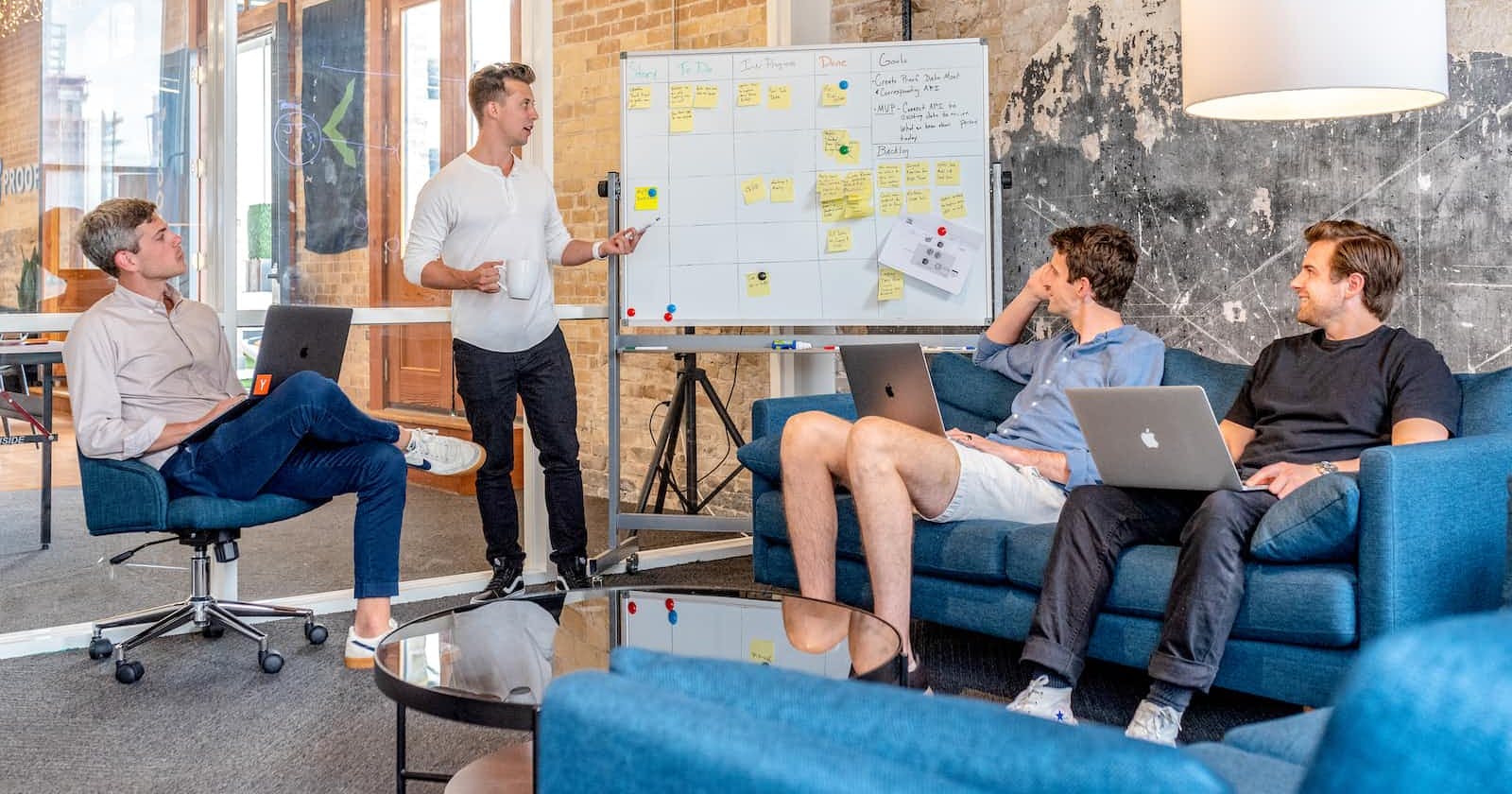
Photo by Austin Distel on Unsplash
5 Recommendations for all Young Developers.
It's terrifying to be new! This is how I navigate my path and do my work anyhow.
The technology environment is intimidating. Software architecture is difficult to learn. At first, everything seems overwhelming. mostly because it is 🤯.
With practice, the answer will emerge.
Here are my top five tips for any aspiring junior developers:
🌱 1. Focus on One Field
To begin explaining it, let me state that a full-stack developer should be knowledgeable in all areas, including frontend, backend, cloud, DevOps, and everything else. They perform both front-end and back-end development, to start.
Not only are the front-end and back-end being examined, but also how those two components interact with one another. A full-stack employee is typically merely a competent front-end developer, which is acceptable in the backend.
I can imagine how overwhelming full-stack positions could be. By all means, concentrate on one area and excel in it rather than aiming too high and attempting to become a full-stack developer.
Focusing on a single stack was connected to what I had previously indicated. Yes, you need to work regularly and in little stages. Being proficient in an area requires a lot of study, understanding, and practice.
When you excel in one area, you have two options: become an expert in that area by focusing on your studies more, or become a full-stack by learning about other areas as well.
🌱 2. FOMO — Fear Of Missing Out
Even though you are already learning something, when you first start working as a developer, you could feel like you need to simultaneously learn ten different languages, frameworks, and libraries.
This is because software development is always developing. With the regular development of new languages, frameworks, and tools, it is enormous and rising bigger.
At the beginning of my profession, I experienced the sensation of worry and was unsure of where to begin. We are unable to master all of those technologies. There are countless things to discover. If you choose to study a lot of them, you will eventually know all of those technologies, but only superficially.
Instead, concentrate on one stack, regardless of whether it is new, elegant, or ancient. Everything you need can be found online, and there is a tonne of lessons and videos available. The result is that you can delve deeper and excel as a programmer in that field.
🌱 3. Tutorial Hell
You could watch a series of tutorials since we are inexperienced developers who are eager to learn and prepared to take over the programming world. Even while at first glance it may seem like a good thing since you are educating yourself, you will soon realise that this is not a productive method of learning.
The only drawback of studying independently maybe this. A developer's ability to solve problems by coming up with a programming solution depends on their ability to solve difficulties. You must experience solving difficulties on your own to learn how to do this; you cannot gain this talent by watching others solve problems.
When I went through a beginner's course in Java approximately five times, I still didn't understand it. You should use the barest minimum of tutorials and build your own code instead. You might, for instance, make a portfolio and link all the personal projects you are working on to it, constructing some projects and using the skills you are learning.
I can tell that it is challenging to not be an over-perfectionist before publishing it. There are several resources available to you if you need assistance when developing code, such as Stackoverflow or Reddit.
🌱 4. Get a Mentor
Get yourself a mentor—someone who is sharing their experience-based advice with you—and do yourself a favour. Instead of assisting you in mastering a particular programming language or technology, a mentor will show you many career options and which ones could be best for you.
By advising you on which activities will improve your talents and which activities to avoid. Both technical and individualised guidance is given. Because you don't comprehend a particular subject, you might quickly become demotivated.
You need to learn how to ask for assistance because you are a new software engineer. There are numerous individuals online that mentor young developers, and you could meet someone at work or have a senior become somewhat of a mentor to you.
🌱 5. Never Too Late
My degree in software engineering is in its final stages. Both difficult and good moments have come along the way. I've gained a lot of knowledge. It's wonderful to be able to develop a front-end application, and a back-end database, and interact with external APIs to produce a working online application.
There have been times when trying to remedy a simple issue took the entirety of my day, which was frustrating. However, after the job is finished, I finally experience a sense of pride and enthusiasm.
You may alter your own future by what you're doing right now.
What I have discovered to be the most useful lesson is as follows: Change may be made at any time, and taking on a new task is never too late. I had a lot of self-limiting thoughts before deciding to pursue this job, such as, "Do I truly enjoy programming?" Is this profession right for me?
Like everything else, anyone can learn new talents and develop their potential with a commitment of time and effort.
🌱 Summary
🔥 Focus on One Field
🔥 FOMO — Fear Of Missing Out
🔥 Tutorial Hell
🔥 Get a Mentor
🔥 Never Too Late
I hope you may learn something from it and use the advice to further your profession. I wish I had known these things when I was just starting out 🥰.
I appreciate you reading all the way through ❤️✨.

